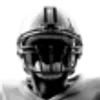Tennessee Titans: nfl FUTURES & BETTING ODDS

TEN
Tennessee Titans
0-0
Futures
Roster
Chance Campbell

Tre Avery

Thomas Odukoya

JoJo Domann

James Empey

Julius Chestnut

Jack Gibbens

Andrew Rupcich

Leroy Watson

Ryan Stonehouse

Mike Brown

Peter Skoronski

Kyle Philips

Hassan Haskins

Chigoziem Okonkwo

Nicholas Petit-Frere

Malik Willis

Roger McCreary

Treylon Burks

Caleb Farley

Dillon Radunz

Mason Kinsey

Kearis Jackson

T'Vondre Sweat

JC Latham

Eric Garror

Matthew Jackson

Tre'Shaun Harrison

Anthony Kendall

Otis Reese

Ty Zentner

TK McLendon

Thomas Rush

Rashad Weaver

Caleb Murphy

John Ojukwu

Shakel Brown

Colton Dowell

Jaelyn Duncan

Keondre Coburn

Josh Whyle

Tyjae Spears

Will Levis

Ryan Tannehill

Trevon Wesco

Luke Gifford

Tony Pollard

Kendall Sheffield

Corey Levin

Harold Landry

Jordan Roos

Terrell Edmunds

Mason Rudolph

Jaleel Johnson

Amani Hooker

Sebastian Joseph-Day

DeAndre Hopkins

Kevin Rader

Kyle Peko

Joe Jones

Chidobe Awuzie

Chris Hubbard

Morgan Cox

Calvin Ridley

Arden Key

Elijah Molden

David Moa

Garret Wallow

Shyheim Carter

Quinton Bohanna

Tay Gowan

Saahdiq Charles

Nick Westbrook-Ikhine

Tae Crowder

Devin Asiasi

Daniel Brunskill

Kenneth Murray

L'Jarius Sneed

Ross Blacklock

Lloyd Cushenberry

Lachavious Simmons

Marlon Davidson

Jonathan Ward

Nick Folk

Jeffery Simmons






